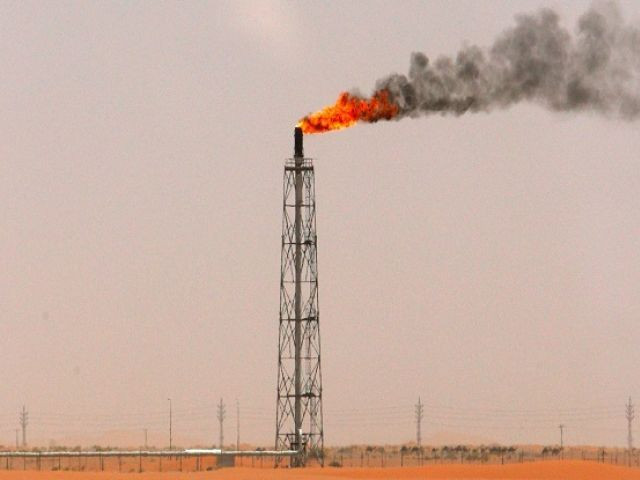Saudi Arabia says will diversify oil economy to slow climate change
According to an estimate, Saudi Arabia emits 527 million tonnes of carbon dioxide a year

According to an estimate, Saudi Arabia emits 527 million tonnes of carbon dioxide a year. PHOTO: REUTERS
OPEC member Saudi Arabia is the last of the Group of 20 major economies to submit a plan to the United Nations before a summit in Paris from Nov. 30-Dec. 11 about ways to slow global warming.
World Bank warns climate change could add 100 million poor by 2030
It said it was aiming "to achieve mitigation co-benefits ambitions of up to 130 million tons of carbon dioxide equivalent avoided by 2030 annually through contributions to economic diversification and adaptation," it said.
Saudi Arabia did not give details of its current emissions. The World Resources Institute think-tank estimates that Saudi Arabia emits 527 million tonnes of carbon dioxide a year, or 1.22 percent of the world total.
The mere submission of a plan by Saudi Arabia is a positive sign for a deal in Paris. About 160 nations have issued national plans, meant to combat heatwaves, floods, droughts, and rising sea levels.
Pakistan’s bottom 40% to feel the ‘heat’ by 2030
Saudi Arabia said its plan was based on a scenario in which it would diversify the economy with a "robust contribution" from export earnings from oil and derivatives.
Earnings would be channelled into lower emission sectors "such as financial services, medical services, tourism, education, renewable energy and energy efficiency technology to enhance growth," it said.
An alternative scenario would involve using more oil at home to fuel carbon-intensive industries such as petrochemicals, cement, mining and metal production, it said, thereby increasing domestic rather than overseas emissions.
Saudi Arabia said it reserves the right to update its plan.
Oil prices crisis: Saudi Arabia's reserves lost $49 bn in four months, says report
It said it plans to use energy more efficiently and invest in solar, wind, geothermal and waste generation.
Saudi Arabia said it was planning to build a plant capturing and using 1,500 tonnes of carbon dioxide a day for use in other petrochemical plants. It would operate a pilot plant at the Othmaniya oil reservoir.
The government would also encourage investments in exploring and producing natural gas. It would seek to adapt to climate change, with measures ranging from reducing the pace of desertificaition to improving public transport.



















COMMENTS
Comments are moderated and generally will be posted if they are on-topic and not abusive.
For more information, please see our Comments FAQ